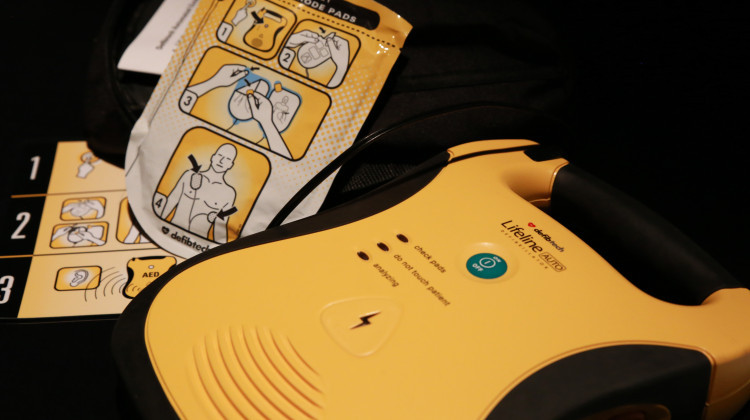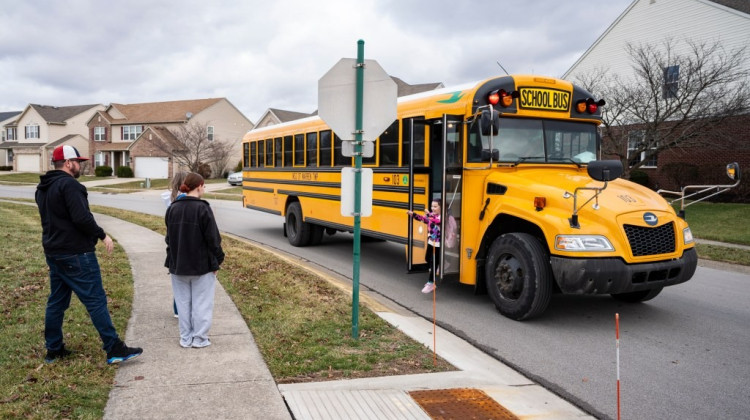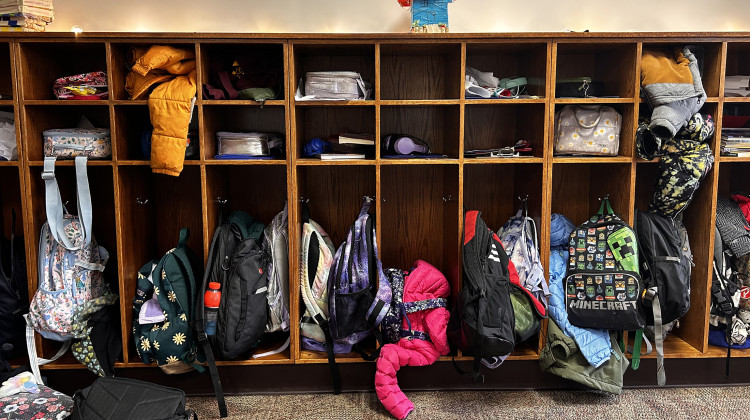Indiana lawmakers are about halfway through this year's legislative session, after key deadlines came and went earlier this week.
Here's some of the education legislation that's still moving:
Curriculum And Parent Oversight
House Bill 1134 received some of the same pushback in committee that was heard in the Senate, especially from teachers. Many of the concerns focused on reporting requirements for schools and the authority the bill would give parents over schools' ability to provide different lessons and social-emotional support to children. Lawmakers made some changes to the bill aiming to alleviate critics' issues with the wide-reaching legislation. But it still received bipartisan opposition during the final vote on the House floor. It ultimately passed the House, but Senate Republicans decided to kill their chamber's version of the bill earlier this session. The bill's future has been unclear since then, but Senate leaders recently suggested major changes are in store for the House's legislation.
Senate lawmakers did move forward with a bill that includes language from HB 1134 focused on material harmful to minors. Under Senate Bill 17, libraries and schools would have one less legal defense against claims they shared harmful materials with minors. Librarians oppose the bill, but parents in the committee hearings support the idea behind it. Senate Democrats have said they agree that harmful material has no place in the hands of children, but some outlined concerns on the Senate floor about the complaint process and questioned if the bill as written will truly address the issue.
School And Student Funding
The first school funding bill to make progress this session was Senate Bill 2. It doesn't do a whole lot. It would allow schools to determine a student's enrollment status using the entire fall semester versus the weeks between the start of the school year and the state's fall count date. The bill was prompted by concerns from schools that they would miss out on a chunk of state funding, after a chaotic start to the school year because of COVID-19 and quarantine rules.
House Bill 1072 received pushback from traditional public schools and organizations representing them, but is widely supported by school choice advocacy groups and charter school leaders. It's not surprising – the bill would require public school districts to share voter-approved referendum funding with charter schools. The idea has been a high priority for House Education Committee Chair Bob Behning (R-Indianapolis) for multiple years now, but some Republicans in the House joined Democrats in voting against the bill. It still passed and now goes to the Senate.
The idea behind Senate Bill 82 has made its way through the Statehouse before. It would put more pressure on schools to ensure students fill out – or strongly consider filing – the Free Application for Federal Student Aid, or FAFSA. The bill made it to the House in previous years, but ultimately didn't make it into law after disagreements over how to change the bill in conference committee.
Another school funding bill has people renewing some of the arguments heard last year over the creation of education scholarship accounts. Senate Bill 331 moves back the timeline for enrollment in ESA's and allows the state treasurer's office to use up to 10 percent of the program's funding in order to administer it the first year, and reduces that to 5 percent in future years.
Join the conversation and sign up for the Indiana Two-Way. Text "Indiana" to 73224. Your comments and questions in response to our weekly text help us find the answers you need on statewide issues.
School Boards
Lawmakers have their eyes on school boards this session in more ways than one. Two bills focus specifically on allowing public comment at those meetings. Senate Bill 83 and House Bill 1130 would require boards to allow public comment, and passed their respective chambers with only a handful of lawmakers voting against the measures.
Teacher Workforce
Teachers unions have come out against Senate Bill 356 and House Bill 1251 – both pieces of legislation would allow schools to hire part-time "adjunct" teachers. Supporters of the proposal have said it's another attempt by the state to address a shortage of educators. But critics worry it could diminish educational quality. Both bills have made it through their respective chambers and are moving on for further consideration on the other side.
Meanwhile, Senate Bill 267 aims to pave a path forward for previous legislation that was blocked by a federal judge last year before it took effect. The law sought to make teachers who want to join a labor union sign a statement each year attesting they know they have a right to not join a union. The judge put an indefinite injunction on the measure and said it was likely "coerced speech" – therefore, not allowed under the First Amendment. This year's bill changes some phrasing to that law, in hopes of avoiding further legal scrutiny.
Lawmakers are also moving ahead with legislation to ensure that schools look into the criminal backgrounds of contractors and consider whether past offenses warrant termination. Senate Bill 115 also adds public indecency to the list of offenses schools should consider when determining whether or not to continue with a contractor's employment.
Special Education
House Bill 1107 would make big changes to the way special education disputes are handled. The bill's author said it's designed to address a "power imbalance" between parents and schools – especially focused on nondisclosure agreements and the publication of settlements between schools and families. The legislation has received mixed responses, but has passed the House and now heads to the Senate.
Another bill focuses on dyslexia screening for children. Senate Bill 123 ensures schools follow current screening laws for dyslexia, and that those laws apply to all public schools – including charters. It passed the Senate with unanimous support.
Child Care
More attention is being turned toward child care too, as the crisis worsens during the pandemic and advocates work to make it more accessible across Indiana. Many were excited at the prospect of a bill that would have directed the state to look more closely at Child Care Development Fund reimbursement rates for providers in different geographic areas, but that bill never received a hearing.
But Senate Bill 404 is moving forward, and would direct a state study committee to further investigate access and affordability of child care in the state and create a strategic plan to improve it.
Hold Harmless
Senate Bill 290 and House Bill 1093 both include provisions to hold schools harmless for the 2021-2022 school year, among other things. It's the third year in a row lawmakers have sought to hold schools harmless with A-F accountability grades, after ILEARN was rolled out and schools across the state saw a drop in scores.
Other bills failed to make it through the first half after receiving intense pushback in their committee hearings, including the Senate's curriculum and parent oversight bill, Senate Bill 167. House Bill 1082 would have made school board races partisan, but never received a vote in committee after the bill's hearing saw widespread opposition for the idea.
Meanwhile, proposals to provide in-state tuition for undocumented students and to require cursive writing for elementary school students never received a hearing.
Contact reporter Jeanie at jlindsa@iu.edu or follow her on Twitter at @jeanjeanielindz.
9(MDAyMzk1MzA4MDE2MjY3OTY1MjM5ZDJjYQ000))
 DONATE
DONATE






 View More Articles
View More Articles



 Support WFYI. We can't do it without you.
Support WFYI. We can't do it without you.